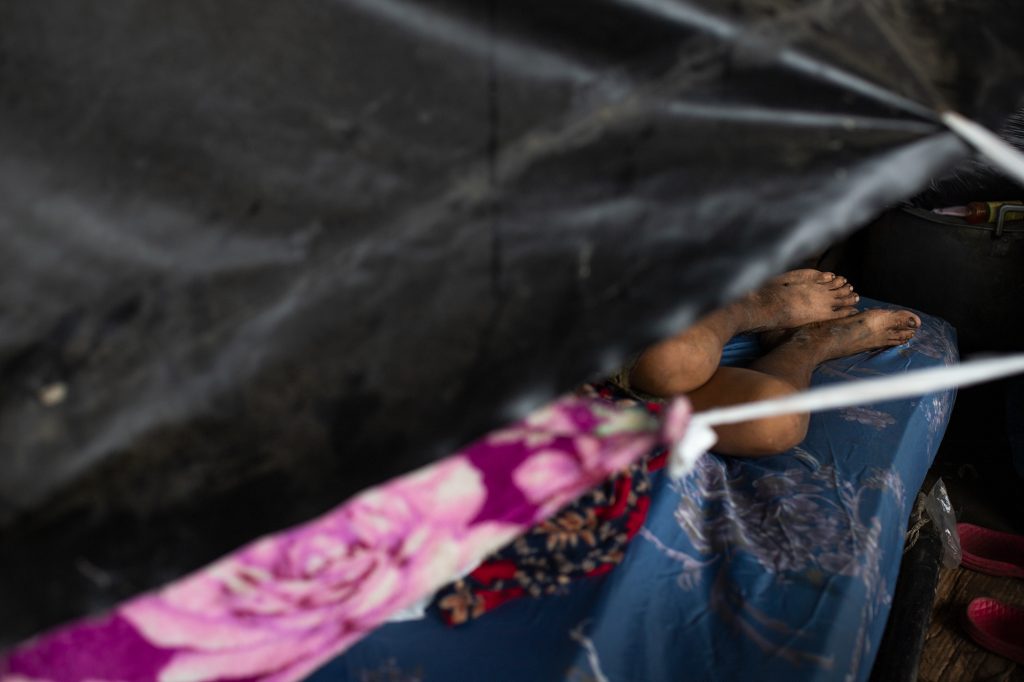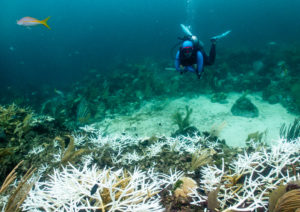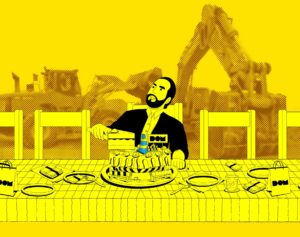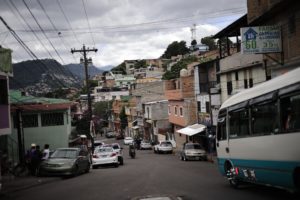“What’s important is that you are okay and that your family is okay. Possessions can be recovered.” I have read and listened to these phrases aimed at people who still were paying for their houses, their appliances, or their cars. Possessions can be recovered? Really? Honduras is a country with a high unemployment rate. The majority of the population cannot afford to own a home, and if they do, it is through loans with terms of 20 years or more. To say that possessions can be recovered to people who have spent months without earning an income, or with seasonal suspensions due to the pandemic, is an act of total apathy.
Hurricane Eta entered our country on November 4, where it later became a tropical storm. Meanwhile, the government indicated that the Morazanian Holiday would continue as planned and that we could go on vacation. The National Hurricane Center warned of Eta’s intensity and its repercussions for Honduras. Nevertheless, the Permanent Contingency Commission (Copeco) did not declare a red alert until November 3.
Since November 5 we have begun to live one uncertainty after another. We find ourselves facing government officials who are incompetent and ineffective; who didn’t think of the victims that the natural disaster would create — who didn’t think of the people who lost absolutely everything.
Personally, I am very grateful that I was not one of those evacuated from their homes, made homeless, and moved to shelters. However, together with my mother, we experienced two days of a lot of uncertainty. My maternal aunts were found trapped in the middle of the water, waiting for someone to arrive and rescue them from the massive flood. Meanwhile, we got things in order, then waited for boats that could take us to where my aunts live, so we could get them out of there.
Wednesday afternoon, my aunts and I lost communication; the worst part was that we weren’t able to do anything. The roads to Lima were flooded and could not be passed after the turnpike. We couldn’t do anything more than call various contacts of people who had boats, but all of our attempts were futile. We could not find any available boats because all of them were being used to rescue other people. Time passed, and we didn’t have news.
We watched on T.V. and social media as people on their roofs called for help. We listened as people’s relatives were reported missing and as others died in the floods. Our waiting was prolonged and filled with anguish. Those two days were intense and filled with uncertainty that we would not want to repeat, though, as I said, many people had it worse. It wasn’t until Friday, around 4 p.m. that my aunts were rescued and we were finally able to hug them and take them into our home.
Eta left more than 100,000 families homeless — people who watched as their houses flooded to the roofs, as they lost everything they had worked for their whole life. Eta — along with COVID-19 — came to demonstrate that we live calamity to calamity. The citizenry no longer expect anything from this government, which doesn’t offer us a dignified life in any way.
In the midst of chaos, and witnessing the ineffectiveness of Copeco, the population began to rescue people they found in danger themselves. They then brought aid to victims who went to shelters. All of this happened through the concept of solidarity. On all social media platforms were the words: “Only the people save the people.” It is this phrase that, in all moments, has prevailed.
After living and witnessing these events, it is impossible to not feel upset by the injustices and insecurity created by a government that does not do its job and fails to comply with their constitutional responsibility to safeguard the wellbeing of its citizens.
Some people have grown accustomed to saying that natural disasters or calamities like COVID-19 affect us all equally; they say that they are catastrophes that don’t see gender, age, race, or economic situation. In reality, disasters like these have always affected the most vulnerable people and poor people. In this country, we have converted access to health care, food, and housing into a privilege. Public health, for example, has collapsed; and, a large part of the population cannot pay for private care in a hospital. If something so vital is not possible, then recovering the goods lost in the floods will take a long time. It will not be easy work in the majority of cases.
I think it is important that we don’t lose our empathy. To say, from the comfort of our homes, that this storm affected us all in the same way because classes were cancelled, because a vacation was cancelled, or because we were forced to stay inside is to be oblivious to the situation in which thousands of Hondurans find themselves.
We cannot speak from a place of privilege and say that this affects us all equally when there are hundreds of families living in a ditch by the side of the highway in Lima. It is unfair to talk from our place privilege when women and children have had to take refuge in a shelter and on top of fighting for their lives, they have to fight against sexual violence, of which many are victims. Without a doubt, Honduras is a country where the majority of rights are exclusive to those in a small social class. Without a doubt, Honduras is a country in calamity, where the privileges of class, sex, and race reign.






